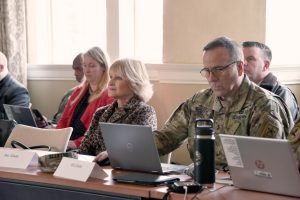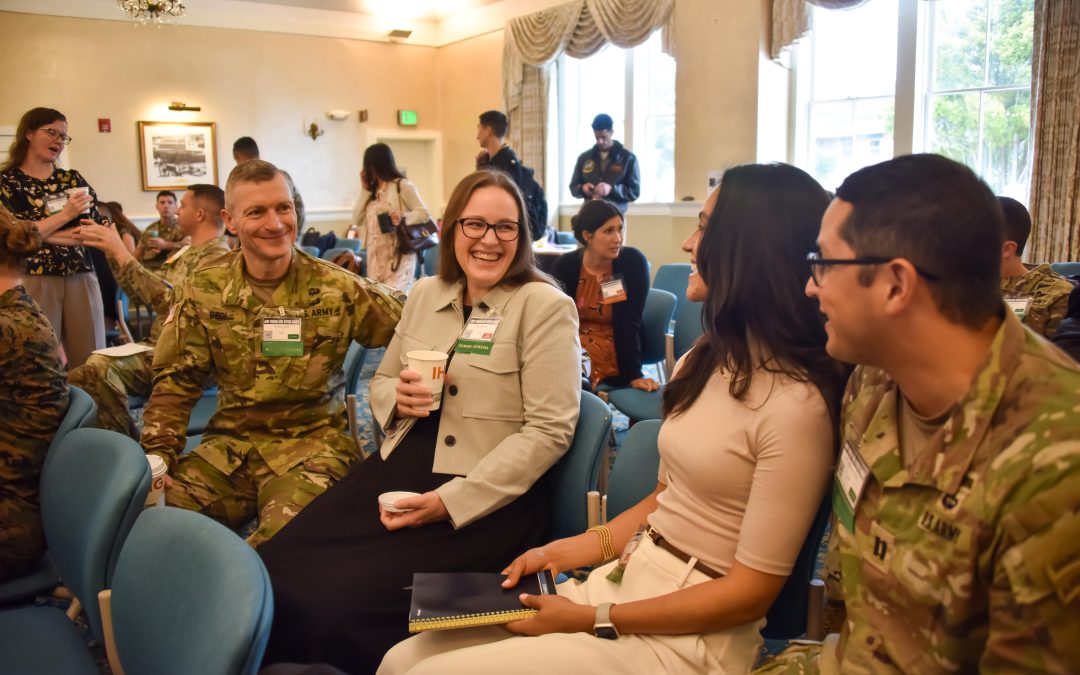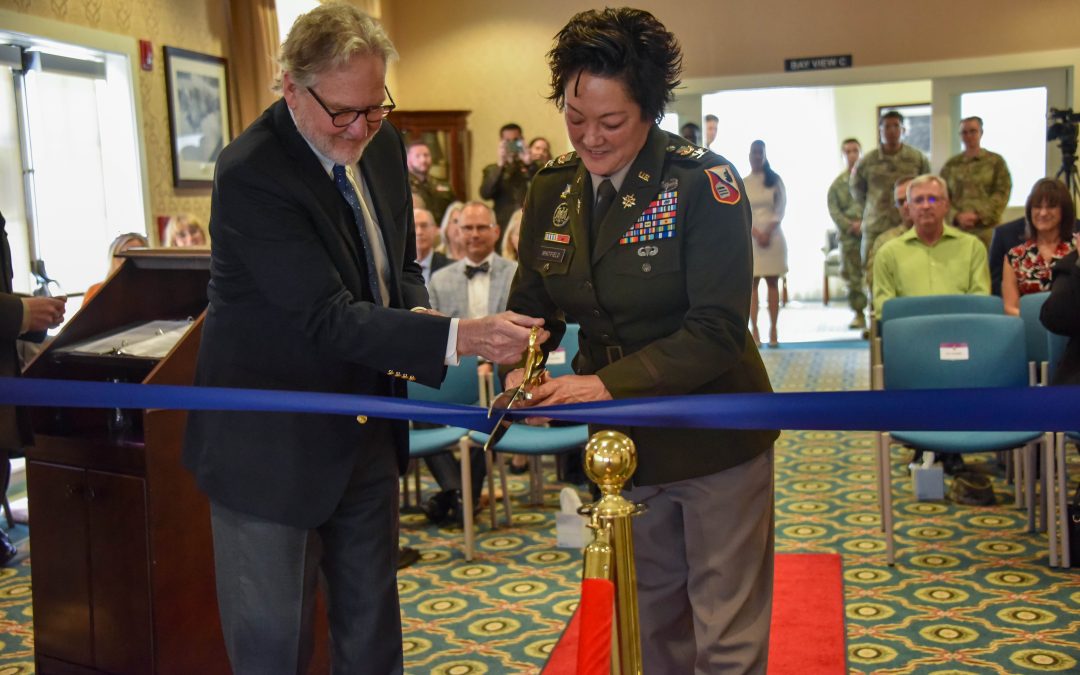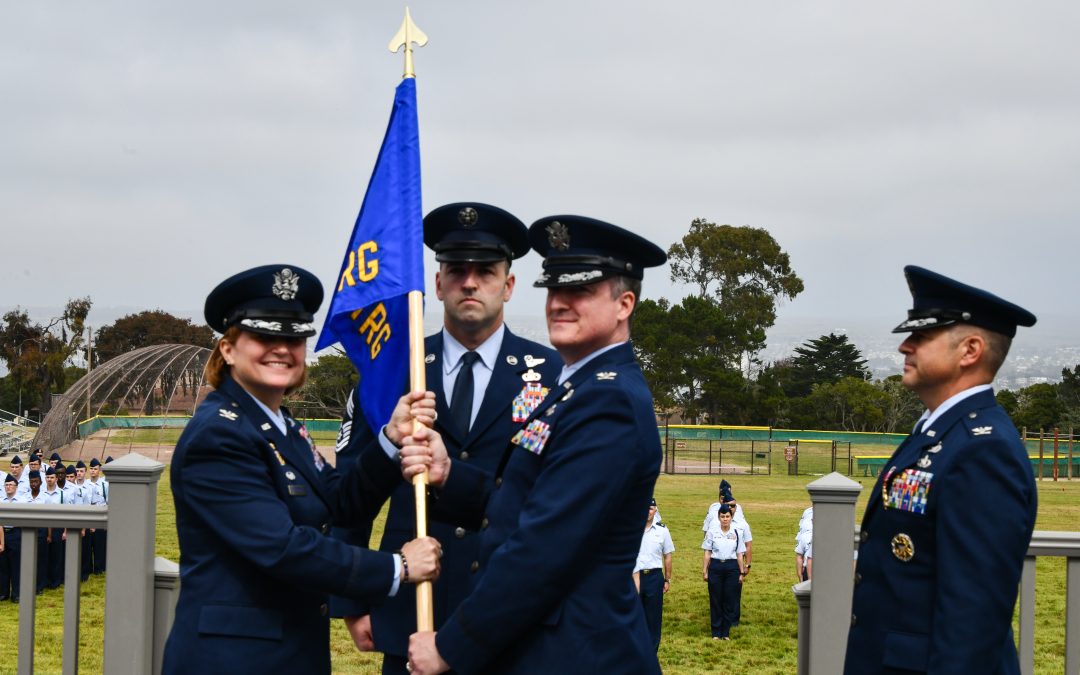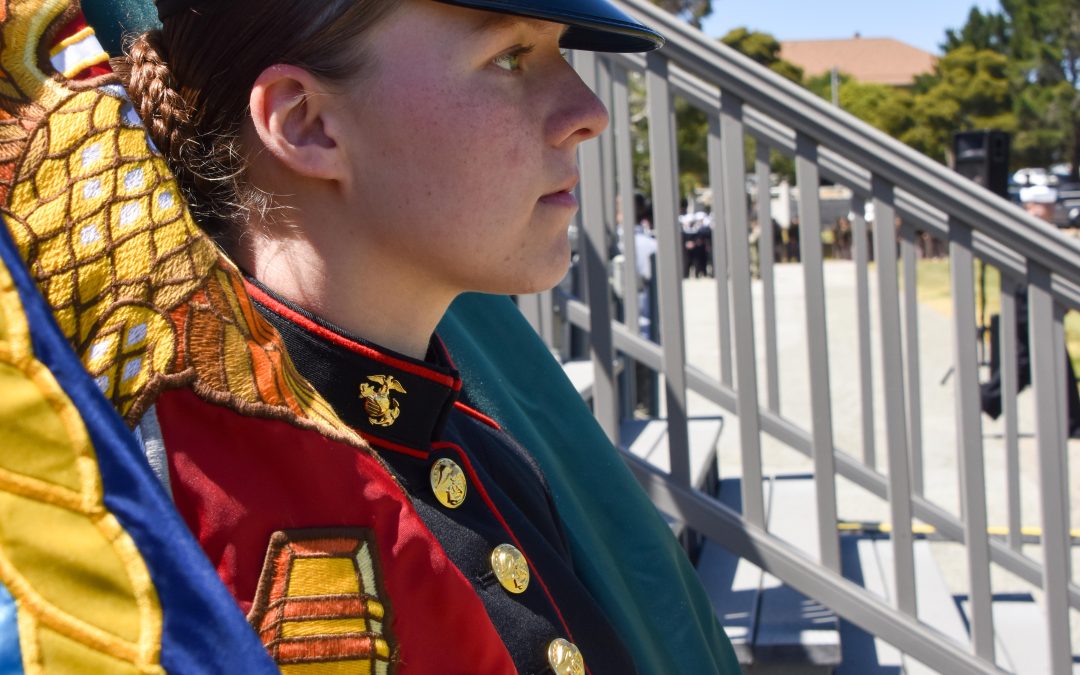More than 150 officers and their spouses attended the Joint Foreign Area Officer Course held at the Defense Language Institute Foreign Language Center’s Weckerling Center Jan. 17 to 20 at the Presidio of Monterey.
The journey of becoming a foreign area officer begins with attendance of the JFAOC, held twice a year at DLIFLC. The course is intended to provide newly assessed FAOs and their spouses from the Army, Navy, Air Force and Marines with an orientation about their new career field.
The keynote speaker for the event was Maj. Gen. Mark Gillette who began his FAO career nearly 30 years ago, speaks four languages and has served as a U.S. military defense attaché at various levels in more than seven countries.
“It’s a joint world, being a FAO,” said Gillette to an audience of newly minted FAOs and their spouses. “You are supporting the joint force, and there can be a lot of ambiguity,” he said, as he began speaking about his most recent experience as the senior defense official and defense attaché at the U.S. Embassy in Cairo, Egypt from 2020 to 2022.
To illustrate some of the challenges FAOs face in the field, Gillette used the example of the accidental blocking of the Suez Canal for six days in March of 2021, when a container ship ran aground, resulting in at least 369 ships queuing up, preventing an estimated $9.6 billion worth of goods from moving, which accounts for 12% of worldwide trade.
“There was a complex system of reporting that went all the way up to the White House and National Security Council,” Gillette explained, stating that he received a stream of calls from all quarters, either seeking information or offering help, which the Egyptians politely refused, time and again.
“I had to repeat several times ‘No, the host nation does not want assistance or a survey team,’” he said, as even those working in private industry called him. “One company suggested that they could fly containers from the ship off into the desert, to lift the weight,” off the ship and have tugboats pull it free. Another suggested “to vibrate the earth next to the ship,” to jar it free, he said with a chuckle.
“It is the job of a FAO to interpret situations and smooth things over,” Gillette told the audience. “While it was inexplicable [to some] that they didn’t want help… it was a matter of saving face,” he said, for the Egyptians who from a cultural viewpoint did not want to be seen as not capable of overcoming a crisis they were actively solving.
Gillette offered that speaking a foreign language is important for a FAO but that it was not absolutely crucial to one’s success. In Cambodia, for example, Gillette said that he learned a couple of good jokes to break the ice, while in Mongolia, he had the opportunity to study the language and often gave speeches, which continuously amazed his hosts.
“The Mongolian president wanted to hire me,” he said laughing. But the essential message of knowing a language illustrates that “just a little bit of [language] made them believe that the U.S. is invested in the country,” which is key in establishing and maintaining relations with allies and partners.
The JFAOC course covers FAO roles and responsibilities, cross-cultural competence, national security policy, security cooperation/assistance, strategic political-military planning, introduction to duties with the country team, attaché roles and responsibilities, and cross-cultural negotiation.
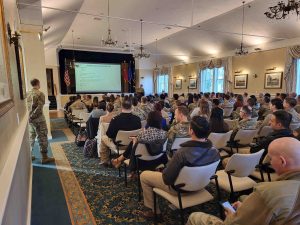
More than 100 FAOs and their spouses attended the JFAOC at the Weckerling Center on the Presidio of Monterey Jan. 17-20.
This year guest speakers also included Maj. Gen. Julian Cheater, assistant deputy under secretary of the Air Force, International Affairs, at the Pentagon, Rear Adm. Michael Baker, senior defense attaché to India, former Ambassador Matthew Harrington, director of the student management office at the National Defense University, and many others.
FAOs, who come from the four branches of the U.S. military, are regionally focused and are considered experts on political-military issues. FAOs typically begin their careers at the one-week course. Once their FAO training is completed, which includes language training and graduate school in a regionally focused topic, they are expected to serve as defense attachés, security cooperation officers and political-military planners worldwide.

